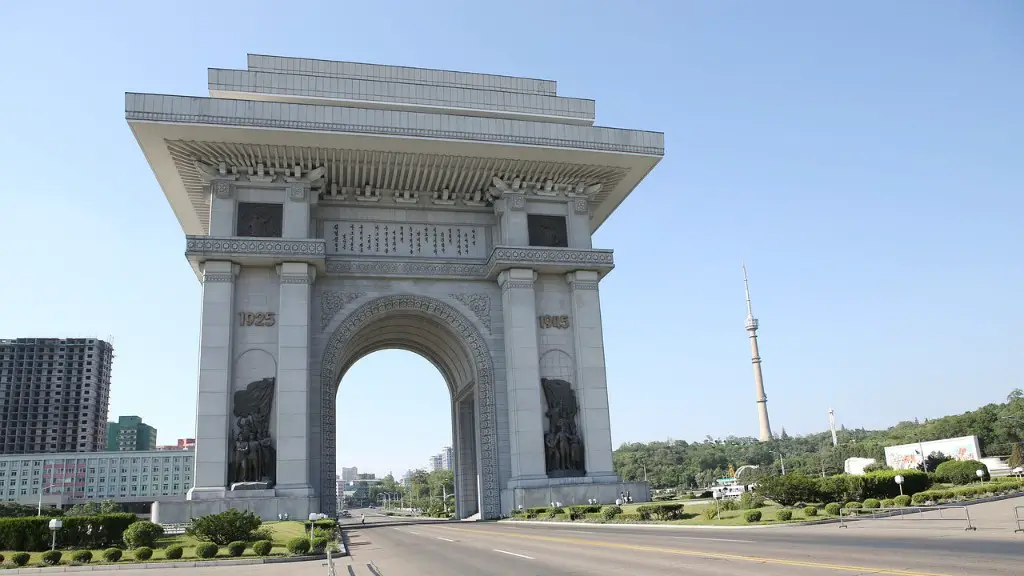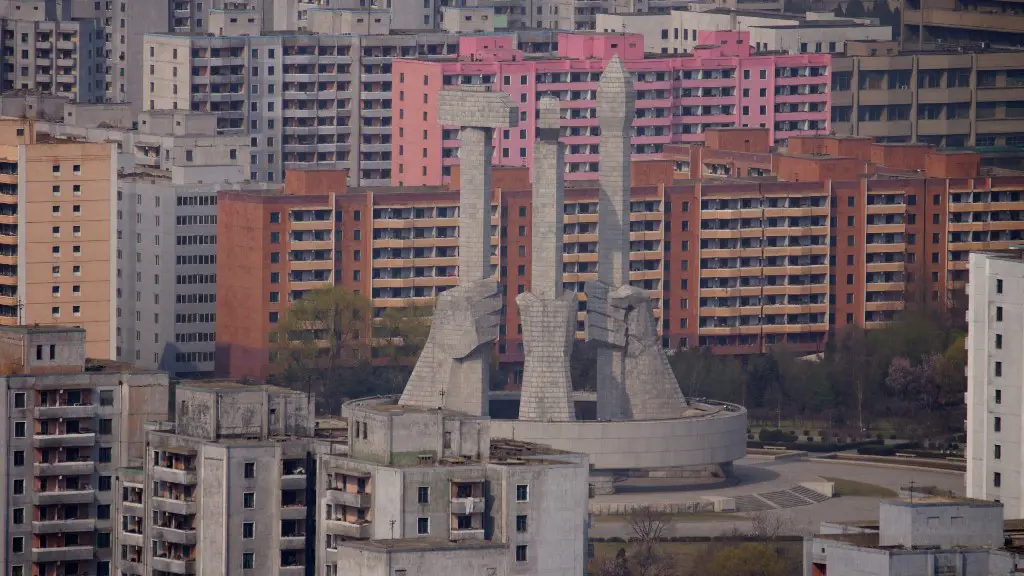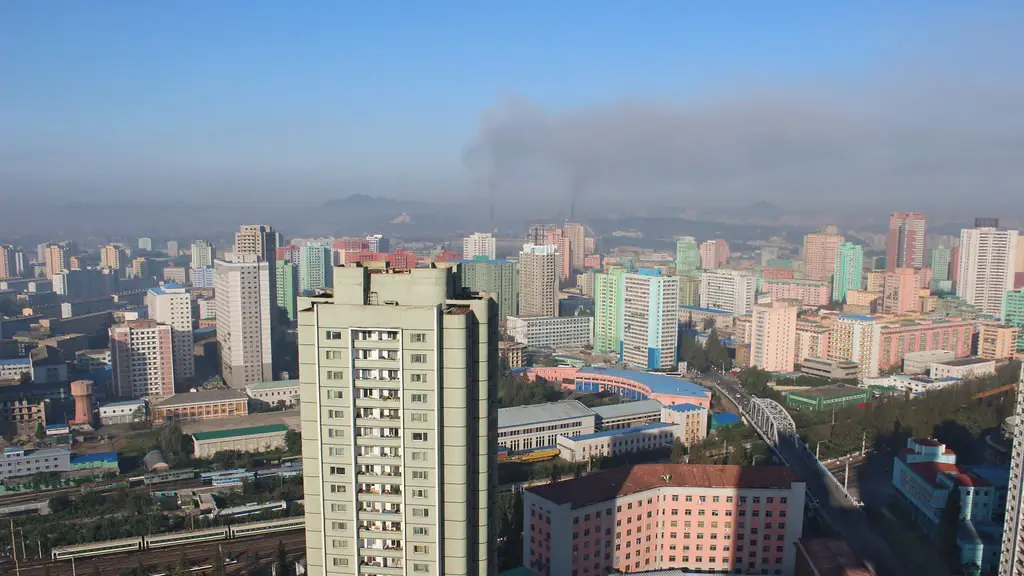The possibility of a war with North Korea has been a topic of much debate and speculation for decades, however since the election of U.S. President Donald Trump it appears that the situation is escalating. As the Trump administration engages in a war of words over the hermit kingdom’s nuclear weapons program, no one knows when, and even if, a conflict of any sort may erupt.
Since North Korea conducted its first nuclear test in 2006, its weapons program has evolved to the point where many experts believe the country has an operational nuclear arsenal. Pyongyang also regularly conducts ballistic missile tests, with the intention of being able to target U.S. cities with a nuclear attack.
Tensions between the two countries have been further heightened due to the appointment of U.S. Secretary of State Mike Pompeo, a former CIA director with a hawk-like view towards North Korea. It appears that the Trump administration has adopted a tougher policy towards the North, which has further raised the possibility of armed conflict.
The Trump administration’s strategy seems to be one of “maximum pressure campaign” which entails using a mix of sanctions and diplomatic pressure to get the North Korean regime to make concessions to the international community.
On the other hand, Pyongyang has a legitimate reason to feel threatened. For decades, the United States has maintained a formidable military presence in South Korea, a country that has been hostile to the North since the end of World War II. This, combined with threats of military action contained in the some of Donald Trump’s tweets, have led to a heightened sense of fear in the North.
Many experts believe the North’s nuclear weapons program is the only thing that provides it with some protection against a potential attack from the United States and its allies. Therefore, it is unlikely that the North will give up its nuclear weapons without receiving some form of security assurances from the United States.
At this point, it is difficult to definitively answer the question of when, or even if, the U.S. will go to war with North Korea. While the possibility of armed conflict cannot be discounted, it appears to be an unlikely scenario at the present time. However, one thing is certain: the situation can change suddenly and dramatically, so it pays to remain vigilant.
The United Nations Role in Stoping War
The United Nations (UN) has an obligation to maintain international peace and security and is regularly involved in working to prevent or stop wars from taking place. In relation to the potential of a U.S./ North Korean conflict, the UN Security Council has passed several rounds of sanctions against the North Korean regime in an effort to force them to abandon their nuclear weapons program.
In addition, the UN has deployed peacekeeping missions in areas of conflict between North and South Korea and has also worked to facilitate communications and cooperation between the two countries. The UN also provides humanitarian assistance to North Korea, in an effort to improve the lives of its citizens.
The UN has also put forward several proposals that, if implemented, could lead to more peaceful relations between Washington and Pyongyang. These proposals include the establishment of a regional security agreement, whereby North Korea would agree to a process of denuclearization in exchange for security guarantees from the United States.
Despite these proposals, the prospects of war have not faded and, depending on the political and economic climate in the region, this could change very quickly.
The Cost of War
Despite the obvious short-term credibility and political benefits of engaging in a conflict with North Korea, the long-term cost of such a war could be immense.
It is estimated that a full-scale war between the United States and North Korea would cost the United States upwards of $1 trillion, and could be much higher depending on the scale and duration of the war.
The economic cost of a war alone would be immense, but the potential human cost would be even greater. Since North Korea is a heavily militarized regime, there is a real risk that any conflict could escalate quickly, resulting in massive casualties on both sides.
In addition, there is the risk of a nuclear escalation, which could cause catastrophic damage to the region and beyond. Given the severity of a potential conflict, it is critical that all sides take appropriate measures to reduce the risk of war.
International Responses to the Conflict
In response to the increasing diplomatic tensions between the U.S. and North Korea, some countries have taken proactive steps to try and calm the situation. China, North Korea’s traditional ally, has been an influential player in the region and has regularly engaged in direct talks with North Korean leadership in an effort to reduce tensions.
In addition, South Korea and Japan, both of whom face potential threats from North Korea, have adopted a less confrontational stance towards the country, and have sought to promote dialogue and cooperation. This has been evident through the intermittent meetings between the two Koreas and the trilateral Summit held between the United States, South Korea and Japan.
Russia has also been a major player in the diplomatic effort and has hosted several rounds of talks between North Korea and the United States. These talks have not achieved much progress, however, they have at least provided a platform for both sides to discuss the issues at hand.
The European Union has also engaged in diplomatic efforts, and has continued to provide humanitarian aid to North Korea despite the sanctions regime imposed by the UN Security Council.
Will Talks Bring Peace?
Despite the raising tensions and the increasing rhetoric coming from both sides, the prospect of a U.S./North Korean war appears to be slim at this time. In recent months, there have been some indications that the two sides are willing to move towards a peaceful resolution, with North Korean leader Kim Jong Un engaging in summits with U.S. President Donald Trump, South Korean President Moon Jae-in, and Chinese leader Xi Jinping.
The meetings have yielded some progress, with North Korean agreeing to certain concessions in terms of its nuclear weapons program and economic sanctions. However, the international community remains wary, as the North Korean regime has a long history of reneging on its promises.
At this point, it is impossible to predict when a potential conflict with North Korea may erupt, however one thing is certain: it must be avoided at all costs. The cost of war would be immense and the consequences could be catastrophic.
The Historcal Precedence for Peaceful Resolution
The North Korean conflict has been ongoing for some time, with both sides frequently engaging in hostile rhetoric. However, despite such tensions, it is still possible for a diplomatic solution to be reached.
The late 1990s showed how effective diplomacy can be in resolving conflict. All parties – the United States, North Korea, South Korea, Japan, China, and Russia – came together and negotiated the so-called “Agreed Framework” which aimed to prevent a nuclear arms race on the Korean Peninsula. Under the agreement, the North agreed to move towards denuclearization and the United States agreed to provide economic aid and security guarantees.
This decision proved to be effective, and led to a period of relative peace and stability in the region. If the parties involved in the current situation can follow the same path of diplomatic engagement, it is possible to achieve a similar result.
The Trump Administration’s Role
It is no secret that President Donald Trump and his administration are not afraid to take bold action when it comes to foreign policy. The Trump administration has adopted a tough stance towards North Korea, with Trump even calling Kim Jong Un a “rocket man” on one occasion.
Despite the harsh rhetoric, the Trump administration has also shown that it is willing to engage in dialogue with the North Korean regime. The two sides have met on several occasions to discuss the possibility of nuclear disarmament and the way forward for peace on the Korean Peninsula.
It remains to be seen if the Trump administration is serious about pursuing a diplomatic solution to the North Korean crisis, or if it will resort to more belligerent tactics. However, it is clear that the United States is playing a critical role in the international response to the conflict.
Conclusion
As the international community grapple with the prospect of a war with North Korea, no one is quite sure when, or even if such a conflict may occur. Despite the ongoing diplomatic efforts, tensions between the two sides remain high, and the situation could change quickly.
At the end of the day, the decision of whether or not to go to war with North Korea is one that can only be made by those in power. Until then, all we can do is wait and hope for the best.





